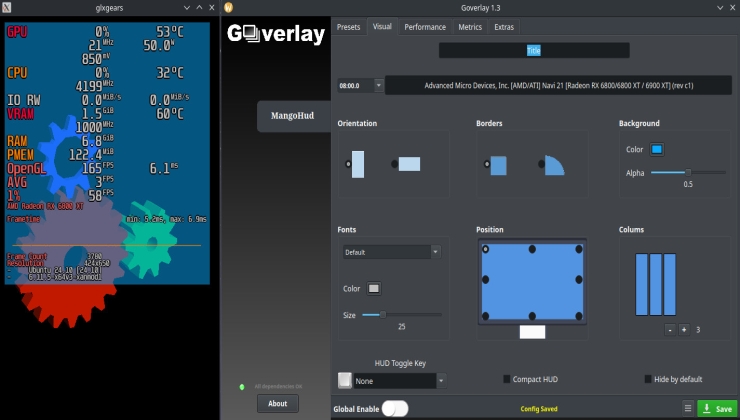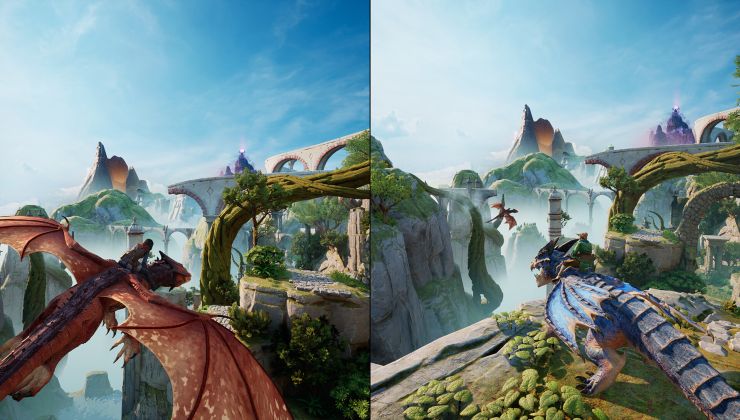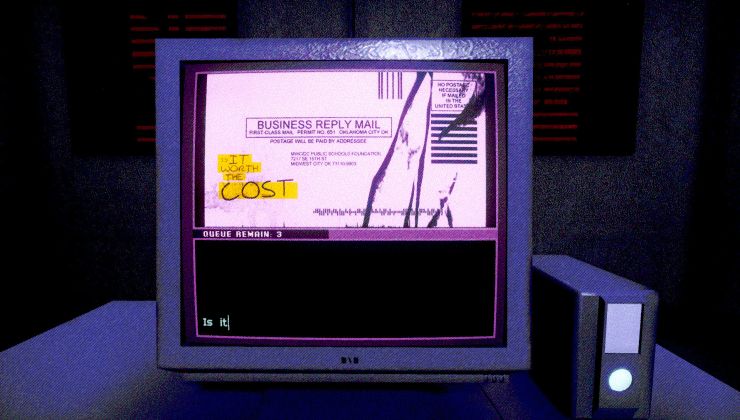Making the rounds recently is a proposal being made to add in payments, donations and subscriptions options to Flathub.
The proposal is available on the Plaintext Group GitHub, which was submitted by Robert McQueen, who is CEO of the Endless OS Foundation and GNOME Board President. For some context here Plaintext Group are "a nonpartisan, technology innovation policy initiative being developed by Schmidt Futures" (Schmidt Futures was founded by ex Google CEO Eric Schmidt).
As per the proposal they're trying to incentivize more "participation in the Linux application ecosystem, and remove financial barriers that prevent diverse participation" and they've already been working on adding in donations and payments on Flathub via Stripe and verify developers too with this year moving onto adding in subscriptions, reoccurring donations, new review tools to prevent abuse, automated security scanning and more to eventually have Flathub become self-sustaining. This is a joint effort between GNOME and KDE.
What they're trying to do is get extra funding to help towards their goal of expanding Flathub, as explained in the proposal they're seeking $100,000 USD from the Plaintext Group to cover the remaining budget needed to enable all this.
To note: this proposal has actually been there since November 2022, when the proposal itself was accepted into the GitHub repository for consideration.
What do you think to this? Especially interesting with Canonical recently going on the opposite direction by having Ubuntu flavours remove Flatpak by default.
Flathub is also going through a rebranding.
I'm all for donations and being able to support various developers, but when I hear "subscription" I think something more commercial (especially since it's mentioned above in addition to recurring donations). And when I think commerical payments, I'm expecting commercial level support... That seems like a pretty high expectation for a dev from a consumer.I'd like for that to happen. It's major, major hopium, but I hope Adobe can eventually come to Linux - so that more users can switch to Linux - and a strong commercial environment for desktop users is necessary for that.
At the very least, we know that Spotify is interested in supporting Flatpak officially but right now they're focused on Wayland and maintaining their official Snaps release.
As Flatpak and Flathub matures, I think it will be the way to get desktop apps on Linux, but there's a long road in the back-end and front-end support and adoption to reach that point, and this is one important step within that road.
Makes me wonder how workable it would be to build Flatpaks with (Windows application + Wine), and whether Codeweavers could make a few pennies setting up such packages on Flathub for Windows software sellers?This has already been done in [Winepak](https://github.com/winepak/winepak) (the old one) and [flatpak-wine](https://github.com/fastrizwaan/flatpak-wine#can-we-make-a-flatpak-bundle-of-game--wine). In addition, in practice, this is what the launchers for FFXVI and Genshin on Flatpak are, dunno about other apps like the Minecraft launchers. But I've at least played Genshin on Linux and the setup was easy, game runs fine.
Last edited by fenglengshun on 28 Feb 2023 at 6:02 am UTC
I really dislike these flats/snaps/etc for software i want to use daily. Even for one offs like games i tend to like containers you can roll on your own better. Mainly because they they don't want to solve "linux packaging".
I don't think of this as 'solving linux packaging' it's 'solving distribution of applications'. If you've ever talked to a developer and asked 'why is there no Linux version!?' they'll either respond with 'what's linux?' or they've looked into it, saw that they'd have to either distribute their package as rpm (various versions because not all rpm based distributions are created equal), a deb (these work better in different debian based distros, but can still run into dependency crap), a tar ball, or... a bunch of others that use their own packaging standard. By the time they've looked into it this far, they're head is spinning and they're like 'why can't I just release it as an exe?' Well that option is there too... but Linux users generally don't like .run files, or generic blobs either, especially if they require root to install (which even on windows most ask for permission to install crap outside the user's dir).
Flatpak, Snap, Appimage all are different attempts to solve this issue.
My biggest issue currently with flatpak? Gnome-Software has a higher preference for flatpaks over the native package manager! I found a bug report / feature request to be able to change this, but it doesn't look like there has been much movement on it. There is supposedly an option in dconf for it, but i couldn't seem to find it the other day when I went looking.
I really dislike these flats/snaps/etc for software i want to use daily. Even for one offs like games i tend to like containers you can roll on your own better. Mainly because they they don't want to solve "linux packaging".
I don't think of this as 'solving linux packaging' it's 'solving distribution of applications'. If you've ever talked to a developer and asked 'why is there no Linux version!?' they'll either respond with 'what's linux?' or they've looked into it, saw that they'd have to either distribute their package as rpm (various versions because not all rpm based distributions are created equal), a deb (these work better in different debian based distros, but can still run into dependency crap), a tar ball, or... a bunch of others that use their own packaging standard. By the time they've looked into it this far, they're head is spinning and they're like 'why can't I just release it as an exe?' Well that option is there too... but Linux users generally don't like .run files, or generic blobs either, especially if they require root to install (which even on windows most ask for permission to install crap outside the user's dir).
Flatpak, Snap, Appimage all are different attempts to solve this issue.
My biggest issue currently with flatpak? Gnome-Software has a higher preference for flatpaks over the native package manager! I found a bug report / feature request to be able to change this, but it doesn't look like there has been much movement on it. There is supposedly an option in dconf for it, but i couldn't seem to find it the other day when I went looking.
Which developers? I reckon blob devs won't support much more than Ubuntu and SteamOS in any case, and then the whole thing about generic blobs is mute. (stuff like games etc.) And the blobs that matter for computer operation either get replaced or seem to be moving in a direction where the hardware manufacturers want to produce working solutions for linux distros. It's not really effected by flatpak & co. either.
My uneducated guess is that the ones that can't figure out tarballs don't really want to support the distros either.
Money is better spent on your favourite distro or the FSF imo.
These things supposed to be "secure" but they have some idiotic configuration. My aunt needs Adobe Reader because in 2022 EU and local govt. systems still mandate proprietary programs, so it was installed on her main computer (a snap package). It got infected by a trojan and I only found it by chance, as I ran a virus scan/upgrade for her some point later.
'Which Developers' Well that's the point, we don't know how many developers have looked at trying to develop software for the Linux Desktop, saw the mess that is distributing their software, and gave up. Steam came along and is a great way for commercial software to be distributed, but I'm sure most don't want to give up that large of a cut.
By the way, I've seen alternatives to Acrobat Reader that fulfills all of it's functions, damned if I can remember what it was called though.
Now I'm curious though how you got a trojan in the snap package of Acrobat Reader???
I am NOT talking about opensource / free software. I'm talking about commercial software that require their own support infrastructure. The free software stuff is pretty much always 'provided as is, and if I feel like I can fix your issue with it, then likely will in my own time.' So if you want it packaged for your own distro / ease of use, most times it's up to you, or someone in the distribution to package it. Discoverability of such things is very minimal though. Like most of the time I look for software, I just use 'apt search $thing' instead of going to DuckDuckGo and looking for one. Flatpak just adds more stuff I can search for without having to download off some random site.I really dislike these flats/snaps/etc for software i want to use daily. Even for one offs like games i tend to like containers you can roll on your own better. Mainly because they they don't want to solve "linux packaging".
I don't think of this as 'solving linux packaging' it's 'solving distribution of applications'. If you've ever talked to a developer and asked 'why is there no Linux version!?' they'll either respond with 'what's linux?' or they've looked into it, saw that they'd have to either distribute their package as rpm (various versions because not all rpm based distributions are created equal), a deb (these work better in different debian based distros, but can still run into dependency crap), a tar ball, or... a bunch of others that use their own packaging standard. By the time they've looked into it this far, they're head is spinning and they're like 'why can't I just release it as an exe?' Well that option is there too... but Linux users generally don't like .run files, or generic blobs either, especially if they require root to install (which even on windows most ask for permission to install crap outside the user's dir).
Flatpak, Snap, Appimage all are different attempts to solve this issue.
My biggest issue currently with flatpak? Gnome-Software has a higher preference for flatpaks over the native package manager! I found a bug report / feature request to be able to change this, but it doesn't look like there has been much movement on it. There is supposedly an option in dconf for it, but i couldn't seem to find it the other day when I went looking.
Which developers? I reckon blob devs won't support much more than Ubuntu and SteamOS in any case, and then the whole thing about generic blobs is mute. (stuff like games etc.) And the blobs that matter for computer operation either get replaced or seem to be moving in a direction where the hardware manufacturers want to produce working solutions for linux distros. It's not really effected by flatpak & co. either.
My uneducated guess is that the ones that can't figure out tarballs don't really want to support the distros either.
Money is better spent on your favourite distro or the FSF imo.
These things supposed to be "secure" but they have some idiotic configuration. My aunt needs Adobe Reader because in 2022 EU and local govt. systems still mandate proprietary programs, so it was installed on her main computer (a snap package). It got infected by a trojan and I only found it by chance, as I ran a virus scan/upgrade for her some point later.
'Which Developers' Well that's the point, we don't know how many developers have looked at trying to develop software for the Linux Desktop, saw the mess that is distributing their software, and gave up. Steam came along and is a great way for commercial software to be distributed, but I'm sure most don't want to give up that large of a cut.
By the way, I've seen alternatives to Acrobat Reader that fulfills all of it's functions, damned if I can remember what it was called though.
Now I'm curious though how you got a trojan in the snap package of Acrobat Reader???
Look, my whole point is, people developing free software have the choice to deal with the "mess" ie. work with maintainers/packagers, do it themselves or just drop their code wherever if they want to release it at all. These new and shiny package formats only cater to blob devs imo., and that shouldn't be the goal of any free software projects.
Additionally, i don't think anyone can convince me that any developer that's making a tantrum about this is not just lazy - the practice has been the same for years - dump it on ubuntu with "support" and the rest will figure it out, and the users understood it perfectly.









 How to set, change and reset your SteamOS / Steam Deck desktop sudo password
How to set, change and reset your SteamOS / Steam Deck desktop sudo password How to set up Decky Loader on Steam Deck / SteamOS for easy plugins
How to set up Decky Loader on Steam Deck / SteamOS for easy plugins
See more from me